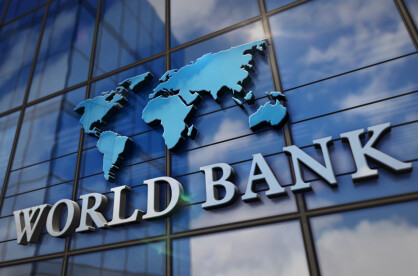Diplomacy in review
A look back, over the year, at the nation's overseas ties and interactions.

Source: Twitter - Abdullah Shahid
A look back, over the year, at the nation's overseas ties and interactions.

Source: Twitter - Abdullah Shahid
Diplomacy has been and always will be the most effective tool at the disposal of a small developing island nation like the Maldives, and the craft has had time to develop and be fine-tuned over the half century of independence. Now, it is time to see how well it has worked within the last year.
Under the Solih Administration, quite a lot of pivotal changes has been brought to the Maldivian stance and presence on the global stage. While this is usually a point of celebration (as a more fluid diplomacy connotes a healthy involvement in global politics), it is worrying to note that most of the work done had been to undermine and dismantle the major diplomatic relations built in the previous presidential term.
The general, more overarching change is how neighbouring India was a preferred replacement in terms of economic partnership over China, a move that the administration had partially promised under their manifesto. Their promise was to remove the influence of China (which the party had vehemently demonised as encroaching on the very sovereignty of the nation), yet this was followed through with what can be statistically, and physically, observed as near-total dependance on India. With shared control over both infrastructure as well as military control, the alliance with India has disregarded historical diplomatic dealings, and figuratively gathered ‘all the eggs in one basket’, so to speak.
Furthermore, this year has brought to the fray a slew of new ambassadors from other countries, notably from China, Turkey, India, and Hungary. Given the immense shift in Maldivian attention from China to India, this may be a refresher appointment by those two countries, to fully appreciate, understand, and deal with the new attitude of Maldivian foreign relations under the Solih Administration.
Furthermore, it is with great pride and a pinch of salt that the nation celebrate their first ever United Nations General Assembly Presidency, with the election Minister of Foreign Affairs, Abdullah Shahid to the prestigious post. A move that had not seen much public attention, Shahid’s new role has thrown a wrench into the nationalistic responsibilities of his ministerial position, an understanding that is yet to be shared with the public.
A point of note was how the constitution deems it illegal for any member of the cabinet to conduct any profiteering business or work beyond their ministerial duties, and the public raised the question as to whether this would be applicable upon his UNGA Presidency. However, according the UN bylaws, the President receives no salary or renumeration from the organisation, but from their nominee, and in this case, the Maldivian government. While there has been no press release determining that Shahid does not indeed receive any salary, it Is with blissful ignorance that the people can accept his dual positioning as legal. Whether or not is it is effective nor efficient, is yet to be seen.
Looping back to more direct bilateral dealings, the Maldives had, with the beginning of the Solih Administration, quite seriously participated in the modern-day ‘cold-war’ that the American government is waging in the Indian Ocean region. A bold claim, yet true, as the Security Agreement in 2019 had paved the way for a lot of subtle shifts in power in the region. While building radar installations under the Indian government (with the promise of total handover to the Maldivian security forces upon completion), the administration has also included a shared military port in the deal. The Uthuru Thilafalhu agreement, known as the UTF agreement, is a can of worms that flies in the face of nationalism that the Solih Manifesto quite deceivingly pushed forward.
The agreement, which has been lengthily discussed over the course of the year, has three main takeaways: there will be a permanent Indian military presence within the region for the next 60 years; there will be no positive economic impact as they will utilise the agreed regions for free; and all the personnel are given diplomatic immunity. The cherry on top would be the nostalgic reminiscence of the British Protectorate that the Maldives so skilfully gained independence from.
While reports and rumours imply bribery and intentional collusion and disregard for sovereignty, the facts on the ground do weigh in and shift the balance over. A major talking point by the Indian representation in the Maldives as well as by the Maldivian Minister of Defence Mariya Didi (the same person who had previously insulted and undermined the Maldivian military for their apparent ‘failure’ on the November 3rd terror attack instigated by Maldivian rebels with the help of Sri Lankan separatists) is how: a) the security of the entire region (against which similarly militarily aggressive enemy nation is unclear) depends entirely on the continuous tying of knots between the two nations, and b) that the Maldives has no chance whatsoever of resisting any breaches over the nation’s sovereignty. The wisdom is such drastic measures and signing off so much is yet to be seen, but the lack of transparency by the Solih Administration bodes ill will and creates issues of trust between the people and their elected leaders.
The 1.4 billion USD line of credit issued by the Indian EXIM bank does not, according to the Solih Administration, fall within the same category as the unplayable, hamstringing debt to China. For the uninitiated, a loan was what built the Sinamale Bridge, and a Line of Credit is still a loan that is already promised but the projects to be built by that loan is up for discussion. It still needs to be paid back. It would be wise to let the numbers speak in this situation.
All in all, this has been a colourful year for diplomacy in the Maldives. With the desperate hand dealt by Covid-19, the nation has been struggling to recover, mounting debt upon debt in what has been widely regarded as an ill-advised approach to the end goal of economic stability. Furthermore, the hugely deprecating effect of global warming and climate change had been all but forgotten until COP26, when the Solih Administration very vocally demanded financial support in addition to more attention paid to achieving the Paris Accord goals. While the demands abroad are not reflected in the infrastructure locally raises eyebrows, the development of Thilafushi has roped in quite the international investment. Why sharing green-technology has not been the crux of the matter is another question that meets deafened walls.
Diplomacy has long lasting effects. This year, tides have shifted and the political climate is still resettling, and the efforts made by the Solih Administration would only begin bearing fruit over the next few years. Or maybe 60.



